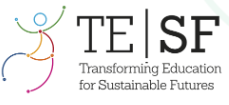Last Fall a consortium of which I am proud to be a part, along with the Education & Learning Sciences Group of Wageningen University received funding from the UK-government to a so-called GCRF Network Plus on Transforming Education for Sustainable Futures. The network is co-ordinated out of the University of Bristol and includes partners in India, Rwanda, Somalia/Somaliland, South Africa, the United Kingdom and the Netherlands. TESF undertakes collaborative research to Transform Education for Sustainable Futures. We have just released an introductory video (see above) and just released a timely paper:

Here is the link to the briefing paper:
This paper addresses the following topics:
- What is Transformative Public Education
- Why Transformative Public Education matters to the COVID-19 response
- Why Transformative Public Education matters for addressing long-term underlying risks to communities
- Examples of Transformative Public Education responses to COVID-19
- Suggestions for governments and state welfare actors seeking to work with Transformative Public Education
- Suggestions for community leaders working with Transformative Public Education
- Transformative Public Education in times of physical distancing
- Key readings and resources
On the TESF website you will also find other resources you may find of interest. Have a look here TESF Home Page
This is TESF’s first response to the C-19 situation, and we would like to see it widely distributed, given the timely nature of this topic. Please do all you can to share it widely across your networks. https://tesf.network/resource/transformative-public-education/






